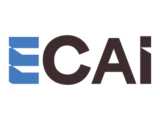A. General Principles
Members should be governed in the conduct of their professional relationships with the exporting community and Austrade. ECAI members Rules of Ethical Conduct are based upon fundamental principles:
1. Integrity
They should be straightforward, honest and sincere in their approach to professional work.
2. Objectivity
They must be fair and must not allow prejudice or bias to override their objectivity.
3. Independence
They should both be and appear to be free of any interest which might be regarded, whatever its actual effect, as being incompatible with integrity and objectivity.
4. Confidentiality
They should respect the confidentiality of information acquired in the course of their work and should not disclose any such information to a third party without specific authority or unless there is a legal or professional duty to disclose it.
5. Technical Standards
They should carry out their professional work in accordance with the technical standards relevant to that work.
6. Professional Competence
They have a duty to maintain their level of competence through ECAI and Austrade development courses.
7. Ethical Behavior
They should conduct themselves in a manner consistent with the good reputation of ECAI and refrain from any conduct, which might bring discredit to the general membership of the Export Consultants Association Incorporated.
B. Specific Principles
1. Loans to or from Clients
No member shall accept or make or guarantee a loan from or to a client save for a loan negotiated at arm’s length in the ordinary course of the client’s business. A transaction so negotiated must not be entered into without full consideration of its effects on actual and apparent professional independence.
2. Appointments Generally
Whenever member is asked to accept an appointment, consideration must be given to whether acceptance might give rise to a situation in which the professional independence of the practice or of the individual may be, or may appear to be, compromised. In the case of an existing appointment, should a situation arise in which professional independence is threatened, immediate steps must be taken to resolve the conflict.
3. Advertising and Publicity
Advertising and publicity are permitted provided that the content or nature of such advertising or publicity is not false, misleading or deceptive or otherwise reflects adversely on the profession.
4. Direct Mailing and Canvassing
Direct mailing to non-clients is permitted on the basis that it is regarded as a passive contact with potential clients. Executives expect to receive invitations to consider the impact of changes in legislation or new technical developments, which may enable them to conduct their business more efficiently and more profitably. To avoid perceived harassment of non-clients members should desist from persistent solicitation.
5. Establishment of trust account
A member may establish and maintain a general trust account for client monies received by the member. A separate trust account shall be established and maintained. The trust account shall include the words “trust account”.
6. Discipline
It is in the interest of all members that the export community and Austrade should have confidence that the ECAI Rules of Ethical will be observed by members and that any identified failure to observe them will be investigated and appropriate action taken. Where it is determined that there are grounds for disciplinary action, the matter is referred to the Ethics Committee. There is a right of appeal to the ECAI National Committee, from a decision of the Ethics Committee.
7. Rule Changes
The ECAI National Committee will continue to issue rules from time to time on matters of importance and to provide for changing circumstances.
